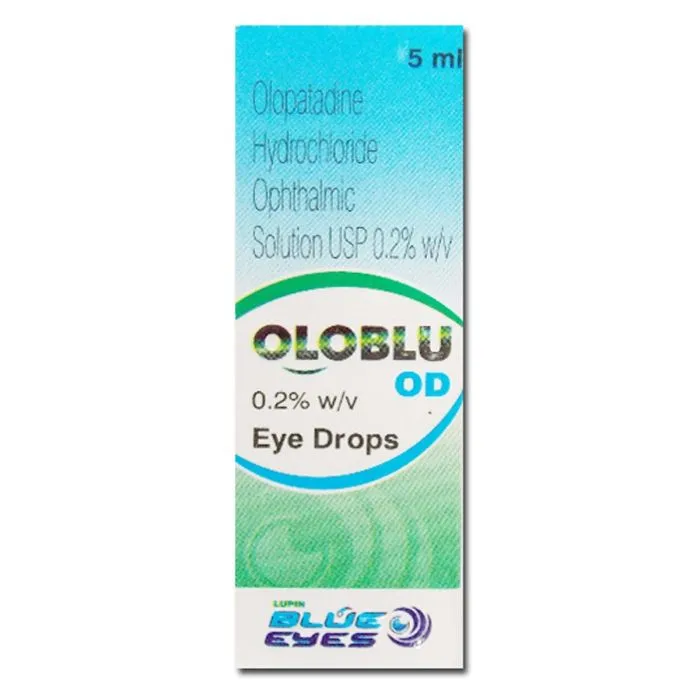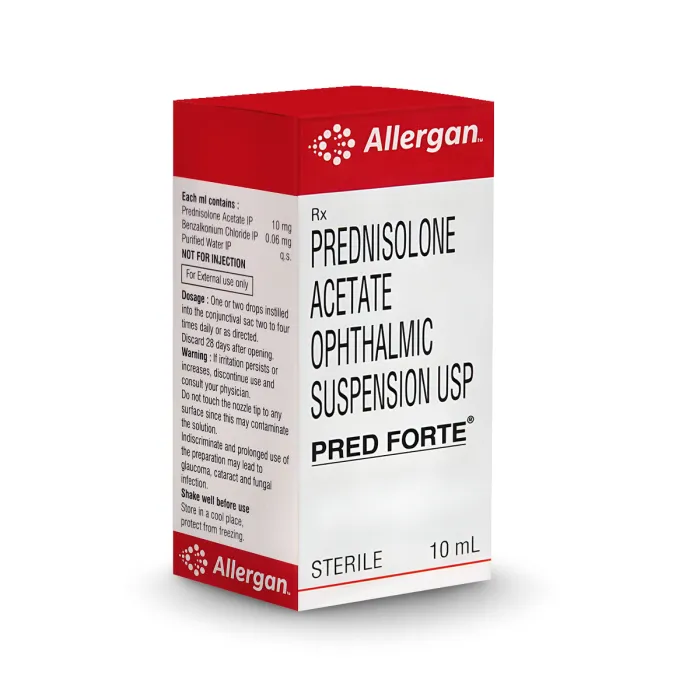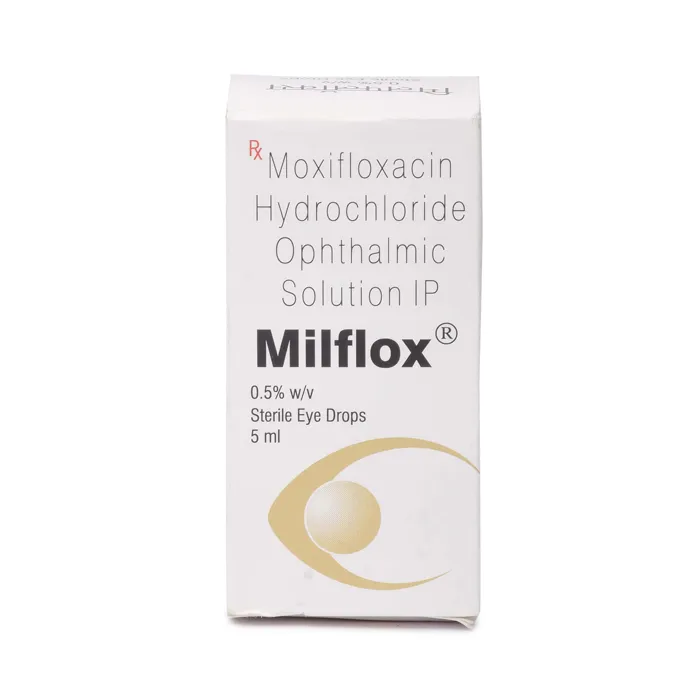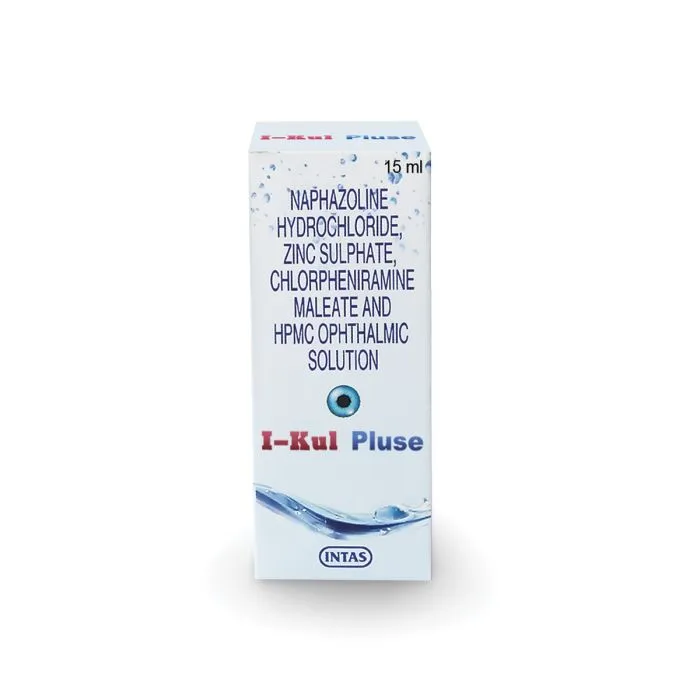A swollen eye, which refers to puffiness or enlargement in one eye, can be uncomfortable and worrisome. More generally, swelling around the eyes is a common issue that can affect one or both eyes, causing the eyelids or under-eye areas to appear puffy or tender.
This swelling occurs when fluid builds up in the tissues, causing redness, puffiness, or discomfort. While it may seem minor, it can sometimes signal allergies, infections, or other underlying health concerns. In many cases, swelling may improve on its own, though some situations require medical treatment.
This article will inform you about the common symptoms and causes, what you can do at home, treatment options, and when to see a doctor for swollen eyes. Whether you just woke up with swollen eyes or want to know how to fix swollen eyes after crying, read this article to understand and manage the condition.
What is a swollen eye?
A swollen eye refers to the puffiness, swelling, or enlargement of the eyelid or the area around one or both eyes. This condition occurs when fluid accumulates in the tissues surrounding the eye, causing the affected area to appear puffy, red, tender, or inflamed.
Swelling can vary in severity and may affect just the eyelid, the under-eye area, or the entire eye region. Swollen eyes can be caused by various factors, including allergies, infections, injuries, fluid retention, or underlying medical conditions.
Understanding what a swollen eye is helps in recognizing symptoms and deciding on the appropriate care or treatment.
Symptoms of a swollen eye
A swollen eye can look and feel different depending on the cause and severity. Knowing the signs makes it easier to decide how to care for your eyes.
Common symptoms to watch for include:
- Puffiness around one or both eyes
- Red or irritated skin on the eyelids
- Tenderness or mild pain in the swollen area
- Itching or warmth around the eye
- Watery eyes or discharge in some cases
- Changes in vision if swelling is severe
It’s helpful to monitor these symptoms carefully to decide if you need home care or medical attention. Every symptom has a cause. Swelling under the eyes is common after not getting enough sleep or due to fluid retention. This puffiness may also be linked to crying or allergies. By understanding why your eyes are swollen, you can find out how to relieve them.
Save up to 90% on your medicine bills

Oloblu OD 0.2% 5 ml

Pred Forte 10 ml

Milflox 0.5% 5 ml

I Kul Plus 15 ml
Common causes
Eye swelling, whether it affects just the eyelids or the surrounding areas of the face, can occur due to various causes. These range from minor irritants and allergies to eye infections or underlying medical conditions. Understanding common causes lets you recognize what might be affecting your eyes.
Allergies
Swollen eyes caused by allergies start with triggers such as exposure to the following common allergens:
- Pollen
- Dust mites
- Pet dander
- Cosmetics
Allergies are among the most common causes of swollen eyes, often associated with seasonal changes (such as pollen in the spring), dust mites in bedding, or reactions to cosmetics like eye makeup or creams.
When exposed to these, your immune system releases histamines, chemicals that cause swelling, itchiness, and redness.
Infections
Eye infections often cause redness, eye pain, and swelling; here are common types to watch for:
- Pink eye (Conjunctivitis): Pink eye is caused by bacterial or viral infections that inflame the conjunctiva and lead to redness, swelling, and discomfort.
- Stye: A Stye is a painful lump on your eyelid that forms when an oil gland becomes infected, causing localized swelling.
- Chalazion: A Chalazion occurs when a blocked gland creates a firm bump on the eyelid; it is less painful than a Stye but can still be swollen.
More serious infections like Orbital Cellulitis require urgent care as the infection spreads beyond the eyelid.
Fluid retention and other causes
Sometimes fluid collects around the eyes from lifestyle factors or health issues, leading to swelling and eye puffiness. These factors include:
- Eating salty foods or drinking alcohol increases water retention, causing puffiness.
- Lack of sleep or fatigue weakens muscles around your eyes, resulting in swelling when you wake up.
- Crying causes puffiness because tears contain salt, which irritates the skin.
- Medical conditions like Thyroid disorders cause specific swelling patterns and may require specialized treatment.
- Injuries like bug bites or trauma can cause swelling as part of the body’s natural healing response.
Since swollen eyes have many causes, identifying the right reason for swelling can help you get the proper treatment.
How to get rid of swollen eyes
Treatment of a swollen eye depends on the cause and might include cold compresses, cleaning your eyelid, antibiotic or antiviral medications, or allergy medicines. Some medications may reduce swelling by controlling inflammation. Always follow your doctor’s advice and never try to self-medicate swelling around your eyes, especially if you notice worsening pain or vision changes.
Medical treatment options
If swelling worsens or does not improve despite home care, medical treatment might be necessary depending on the cause. If allergies cause your eyes to swell, use over-the-counter allergy eye drops or oral antihistamines.
Understanding treatment options helps you work with your healthcare provider for the best care. Treatment approaches your doctor might recommend include:
- Prescription antihistamines or steroid eye drops: Used in severe allergy-related eye swelling to calm immune reactions.
- Oral antibiotics: Required for serious infections like Orbital Cellulitis, which affect deeper tissues.
- Antibiotic or antiviral eye drops: These are used if a bacterial or viral infection (like Pink Eye or a Stye) causes swelling.
- Surgical drainage: This may be necessary if a Stye or Chalazion does not resolve after other treatments.
- Treatment of underlying conditions: For example, Thyroid disease management to reduce symptoms affecting the eyes.
Effective home remedies
You don’t always need medical treatment. Many times, swollen eyes improve with simple, gentle care at home.
Here are some swollen eye remedies you can do to calm swelling and ease discomfort:
- Apply a cool compress: Use a clean cloth dipped in cold water or chilled tea bags. Gently hold the fabric on your eyelids for 10 to 15 minutes several times daily. This helps reduce swelling and inflammation by narrowing blood vessels.
- Warm compresses: These soften blockages in glands and encourage drainage for swollen eyes caused by a Stye or Chalazion.
- Get enough rest: Sleep 7 to 8 hours nightly, keeping your head raised up on pillows to help fluid drain away from your eyes.
- Avoid rubbing or touching: Touching inflamed eyes can worsen irritation or spread infection.
- Gently clean eyelids: Use a diluted baby shampoo solution on a cotton pad or soft cloth to clean away crusts or oils that block glands.
- Stay hydrated: Drinking water can flush out excess salt that causes fluid retention.
- Limit salt and alcohol: Reducing intake helps prevent extra fluid buildup in your face and eyes.
Do not apply eye makeup and contact lenses until the swelling disappears to prevent irritation or bacterial growth.
When to see a doctor for a swollen eye
Knowing when to consult an eye doctor is vital for your eye health. Many mild cases do not need urgent care, but certain signs require immediate attention.
Act quickly and seek medical help if you notice or experience any of these symptoms:
- Swelling lasts more than 1 to 2 days or worsens despite home care.
- Difficulty moving your eye or inability to open it fully.
- Severe pain or significant redness spreads beyond the eyelid.
- Vision problems such as blurred, double, or lost vision.
- Fever or general illness symptoms with eye swelling.
- Swelling combined with facial swelling or other concerning symptoms.
- Sudden swelling after an injury or foreign object contact.
- Pus or thick eye discharge.
Early diagnosis and treatment prevent complications like vision loss or the spread of infection.
Conclusion
Swollen Eyes refer to puffiness, swelling, or enlargement of the eyelids or the tissue around one or both eyes. This condition occurs when fluid builds up in the tissues, making the affected area appear puffy, red, tender, or inflamed.
Swollen eyes can show many symptoms, including puffiness, redness, tenderness, itching, watery eyes, or vision changes. Watching these helps you understand when to use home care or seek medical help. Common causes include allergies, infections like Pink Eye or Styes, fluid retention, tiredness, crying, injuries, and medical conditions such as thyroid disorders.
Many cases improve with simple home remedies like cold or warm compresses, gentle eyelid cleaning, rest, hydration, and allergy medications. Depending on the cause, medical treatment may include antibiotic or antiviral drops, prescription antihistamines, steroids, or surgery.
You should see a doctor if swelling lasts more than 1 to 2 days, worsens, causes pain or vision problems, or comes with fever and discharge. Knowing these key points about a swollen eye guides you to care for it promptly and comfortably.

Frequently Asked Questions
What vitamin deficiency causes eye bags?
Deficiencies in vitamins D, K, E, some B vitamins, or the mineral iron can contribute to eye bags. Low iron slows oxygen delivery, making under-eye blood vessels more visible and causing puffiness. Ensuring adequate intake of these nutrients helps keep the under-eye skin healthy, reducing swelling and dark circles.
Do puffy eyes mean liver problems?
No, puffy eyes do not usually mean liver problems. Puffy eyes often happen because of allergies, tiredness, or salty foods. However, severe liver disease may cause fluid buildup around the eyes. See a doctor if you have other symptoms like yellow skin or eyes.
What are the first signs of Thyroid Eye Disease?
The first signs of Thyroid Eye Disease (TED) include bulging eyes, eyelid swelling or retraction, and redness around the eyes. You might also feel eye pain, dryness, or grittiness, and notice watery or bloodshot eyes. Double vision or difficulty moving your eyes can occur as the disease progresses.
What drink is good for puffy eyes?
Water is a good drink for puffy eyes. Drinking enough water helps keep your body hydrated and reduces swelling. Green and herbal teas also work well because they contain antioxidants that calm the skin. Avoid salty drinks, as they can make puffiness worse. Try to drink water and tea daily.
How to treat Eyelid Dermatitis?
To treat Eyelid Dermatitis, clean gently with a warm, damp cloth. Avoid scratching or using harsh soaps. Use a mild, fragrance-free moisturizer daily. A doctor may prescribe mild steroid creams or non-steroidal ointments to reduce inflammation if needed. Avoid triggers like makeup and harsh products near your eyes.
Is Retinol safe for the under-eyes?
Yes, Retinol can be safe for the under-eyes if you use it carefully. Start with a small amount and choose a gentle formula for that area. Always apply sunscreen during the day and stop if you feel redness, dryness, or irritation to protect your skin.
Cheap Medicine Shop only refers to credible, authoritative sources for our content. If you’re curious about how we ensure the integrity of our content, we encourage you to read our Content Information Policy.














